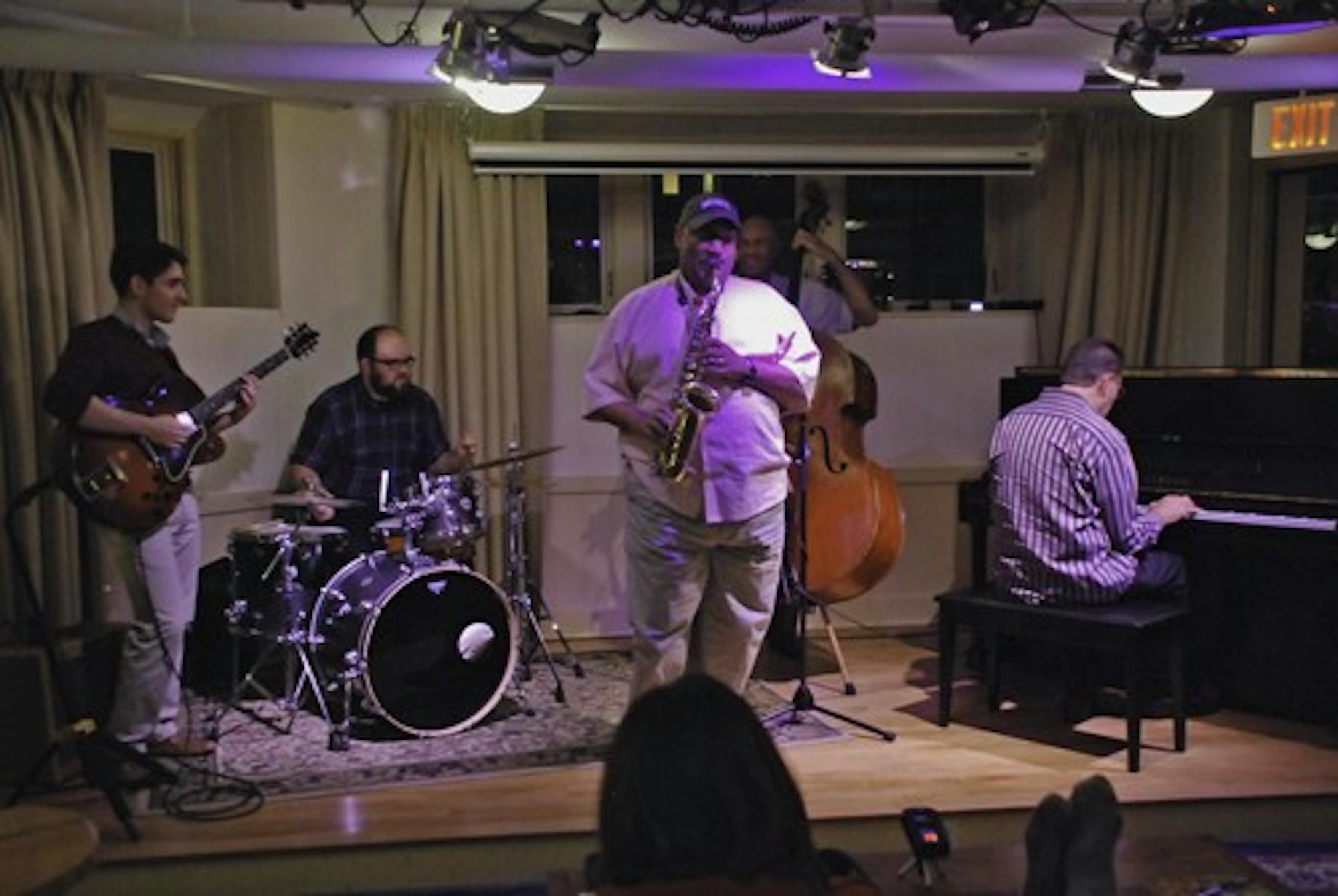Jumping straight from tuning to playing, bassist John Clayton treated an audience of a dozen students, music professors and community members to an original movement spliced with excerpts of a Koussevitzky concerto during his recent Hop Garage performance.
While the enthralled listeners, arranged in a ring around the artist, watched on, he switched to thumb position, pulling the instrument close to his body to access its upper register, before deftly dropping back to lower positions, all the while precisely controlling his playing on the E string. Next, he deposited his German-style bow in a sheath attached to his bass’s tailpiece and transitioned to pizzicato, plucking his instrument with the swagger of an accomplished jazz player.
As a member of a Grammy-nominated quintet, this is a distinction that he has certainly earned.
On Saturday night, John Clayton -— along with his brother, saxophonist Jeff Clayton, his son, pianist Gerald Clayton, and fellow Clayton Brothers Quintet members, drummer Obed Calvaire and trumpeter Terell Stafford — will play a concert in Spaulding Auditorium that features a unique blend of bluesy jazz. The concert will also mark the end of the group’s week-long residency in the music department.
Formed in 1977, the group has built a name for itself among jazz, pop and classical musicians, but the Clayton brothers have enjoyed successful solo careers as well.
John Clayton served as artistic director of jazz at the Los Angeles Philharmonic and filled the principal bass chair in the Amsterdam Philharmonic. He has had success as a composer and arranger, having played with or composed and arranged works for Gladys Knight, Natalie Cole and Michael Buble.
Jeff Clayton, who cultivated a career as a studio and touring musician, has recorded with Stevie Wonder, Kenny Rogers and Madonna. In the jazz world, he has worked with Frank Sinatra, Sammy Davis, Jr. and Ella Fitzgerald.
Each year, the Hopkins Center arranges for three professional artist residencies or joint concerts between professional musicians and the music department. Programming director Margaret Lawrence said that though the residencies vary in genre, the music department asks for artists who connect well with students and overlap in expertise with the courses offered during a particular term.
When choosing artists for residencies, musicians’ ability and willingness to organize workshops, teach master classes and speak to students are key considerations, director of Barbary Coast jazz ensemble Don Glasgo said.
John and Jeff Clayton are committed educators, making them a clear pick for the residency, Glasgo said.
“There were people that helped us all along the way,” Jeff Clayton said. “It was our responsibility to give back to others.”
In addition to John Clayton’s bass master class, the group’s residency includes a workshop with the Barbary Coast Ensemble, a “Jazz Cafe” on Wednesday night and visiting music department classes.
On Tuesday afternoon, John Clayton spoke to the bass master class about the benefits of proper posture and body positioning, essential due to the enormous size of the instrument. John even demonstrated some relevant yoga poses that can help cultivate good practice habits.
John Clayton also emphasized the importance of memorizing all the scales and triads and even sailed through a few three-octave scales to demonstrate.
“It was a really motivating session I had with him,” Andy Shea ’17, who was coached by John Clayton on Tuesday afternoon, said. “He had a lot of good advice.”
Glasgo called the group “grounded in the mainstream tradition.” Its music fits into a “hard bop” style of jazz, characterized by a “hard driving, groove-oriented kind of sound,” he said.
“It’s the kind of music that requires a physical reaction,” Glasgo said. “Whether that is tapping your foot, or standing up, or swinging in your seat, you don’t just sit in your seat and listen in a cerebral perspective.”




